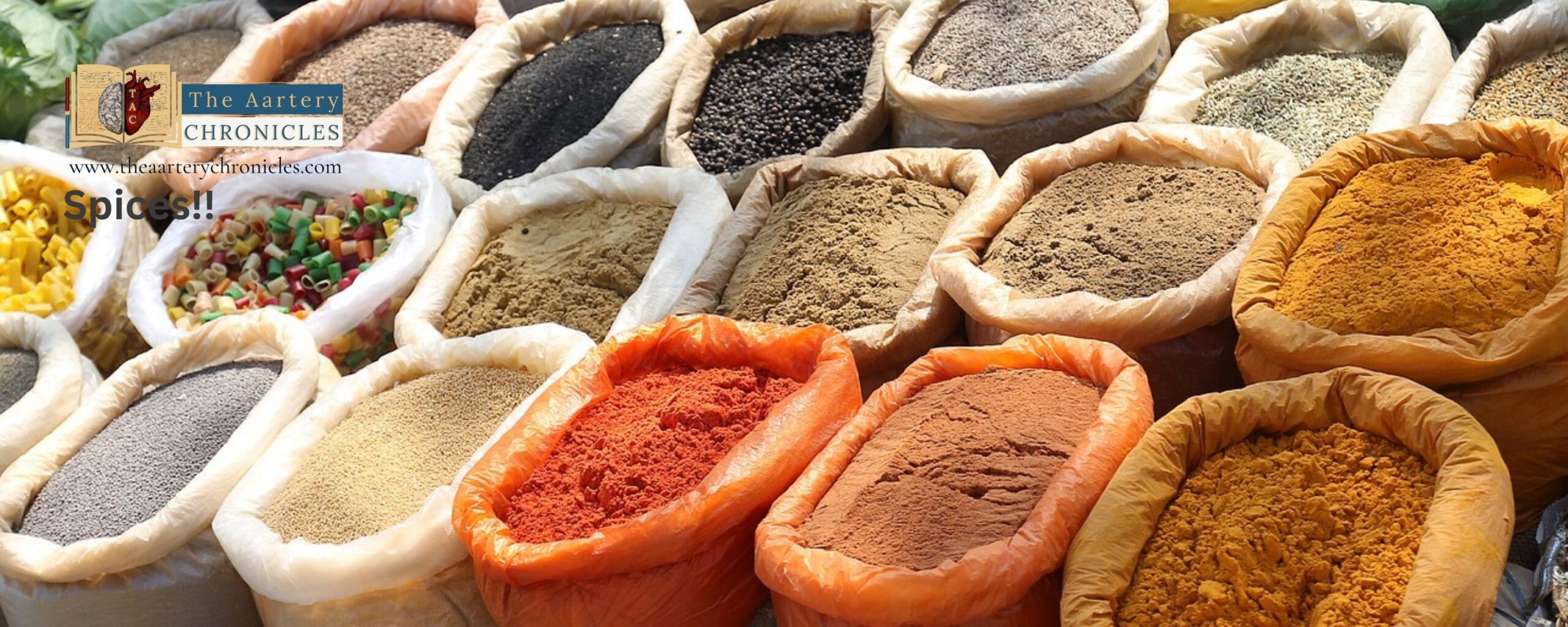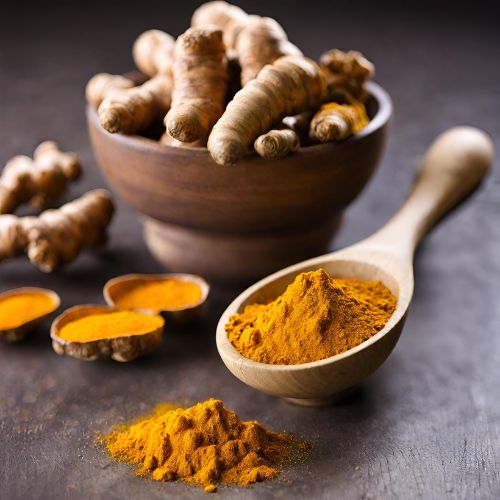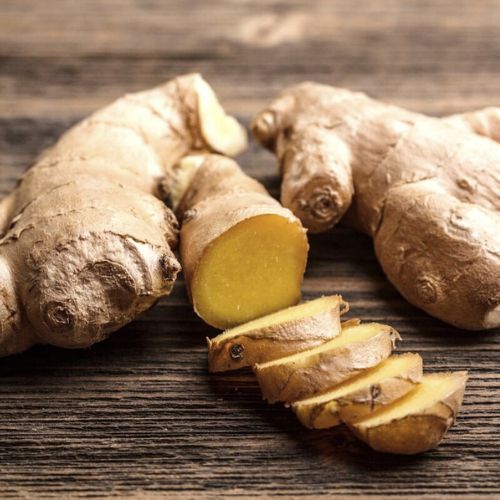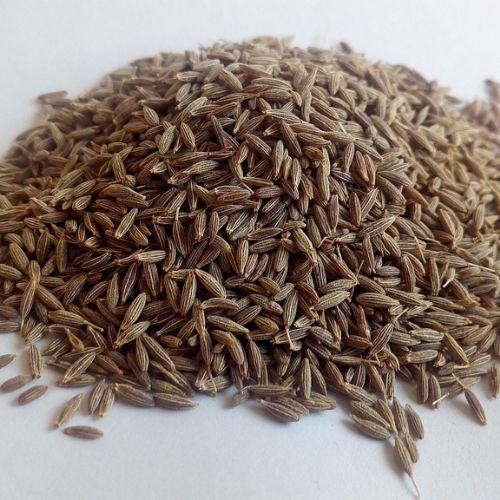

5 common Spices of India: Aromatic Wonders and Health Benefits
India rightfully holds the title of the “land of spices,” contributing over 40% to the global spice trade. As one of the largest spice exporters, India annually produces around two million tons, benefitting from its diverse climatic conditions conducive to cultivating a variety of spices. Indian cuisine has a richness of religious, historical, and cultural influences and is famous for its extensive use of spices which are an integral part of Indian food, making it aromatic and flavourful. Turmeric, cumin, chilli peppers, and asafetida are some of the common spices used in Indian food.
Health Benefits of Spices
Along with the rich flavor spices offer numerous health benefits. A wide range of spices are loaded with antioxidants, which prevent the body from oxidative damage. Spices such as cumin, chilli pepper, and turmeric have anti-inflammatory properties and help reduce the risk of cancer, diabetes, and heart conditions.
1. Turmeric
The wonder spice of Indian cuisine is also known as the ‘Golden treasure’ because of its value and significance. The earliest references to turmeric usage for health can be found in Vedic texts and date back to 500 BCE. One of the most important texts from 600 BCE, Sushruta’s Ayurvedic Compendium mentions the use of turmeric for wound healing, digestive disorders, and inflammatory issues of the liver and various organs.

Health Benefits of Turmeric
- According to the studies, curcumin present in turmeric helps fight diseases such as flu and herpes.
- It may also have a role in managing diabetes as curcumin helps keep the blood sugar level steady.
- Turmeric being rich in phytonutrients reduces the risk of chronic health conditions such as various types of cancers.
Regular consumption of turmeric in small amounts offers numerous health benefits.
- The anti-inflammatory properties of curcumin are highly beneficial for eye conditions, metabolic disorders, etc.
2. Ginger
Ginger or ‘aardrakam’ which is an ancient Indian name for ginger. According to the Vedas, ginger is the fire herb and is linked to the fire god or ‘Agni,’ the fire of digestion.
“The digestive fire in the intestines (jataragni) is the root of all the digestive fires in the body. As it causes the increase or decrease of the elemental and tissue digestive fires it should be treated with great care.” – Ashtanga Hridaya Samhita

Health Benefits of Ginger
- Ginger has numerous health benefits such as management of the weight.
- Ginger controls the levels of insulin and enhances metabolism which aids in weight management.
- Ginger is also known to reduce nausea and vomiting promoting digestion and gut health.
- Ginger may also help with mobility issues due to rheumatoid and osteoarthritis.
Ginger tea on a cold winter morning is invigorating and a matter of emotion to Indian people.
- It aids respiratory issues and nasal congestion caused by the common cold. Due to the immunity-boosting properties of ginger, regular consumption in moderation can prevent seasonal illnesses.
- The anti-inflammatory properties of ginger provide relief from joint aches and other pains
3. Asafoetida
Also termed as ‘Food of Gods’ because of its historical and religious importance in Indian and Persian cultures. Due to its strong pungent smell and bitter taste, it is colloquially known as ‘devil’s dung.’ It gives an umami flavor and is commonly used in dishes such as sambhars and dals.

Health Benefits of Asafoetida
Asafoetida is the most valued spice for its health benefits.
- Asafoetida has been used in traditional medicine for the treatment of ailments such as respiratory issues, digestive disorders, etc.
Asafoetida possesses anti-inflammatory, anti-viral, and carminative properties.
- A small amount of regular consumption can help with digestive issues such as bloating, significantly reduce symptoms of asthma, boost metabolism, promote weight loss, and act as a cholesterol reducer.
4. Red chilli pepper
Red chilli pepper is used in various forms such as dried, whole, fresh, crushed, and powdered. Kashmiri red chillies are one of the most popular varieties used in Indian cuisine.

Health Benefits of Red Chilli Peppers
- Red chilli pepper is rich in minerals and vitamins such as copper, potassium, and vitamin A.
- Carotenoids, zeaxanthin and lutein improve eye health and nourish the immune system.
- Research indicates that carotenoids may contribute to fatty acid oxidation, potentially aiding obesity prevention.
- A few studies have shown the significance of carotenoids in preventing gastric cancer.
5. Cumin
Cumin is one of the most fundamental spices in Indian cuisine that has an earthy flavor and distinct aroma. It is mostly toasted to elevate its nutty essence.

Health Benefits of Cumin
Cumin offers numerous health benefits:
- It has anti-bacterial properties which helps with skin issues such as acne and blemishes.
- The anti-inflammatory properties calm down irritated skin and cure rashes.
- It also strengthens hair follicles promoting healthy hair growth.
- Furthermore, cumin being a good source of iron prevents anemia and is also believed to be beneficial for people with diabetes as it helps manage blood sugar levels.
Conclusion:
These are a few spices and their benefits. In addition, a wide range of other spices, including fenugreek seeds, mustard seeds, cinnamon, saffron, curry leaves, black pepper, and bay leaf, exists. The blend of various spices that is quite popular and used in a variety of dishes is Garam masala. A moderate incorporation of spices in daily meals can offer several health benefits. Adding a pinch of magical spice not only enhances flavor and improves the taste but also significantly increases the nutritional value of food.

Author: Sanika Pande
- Medicine
- Nutrition And Diet
Lorem ipsum dolor sit amet, consectetur adipiscing elit. Ut elit tellus, luctus nec ullamcorper mattis, pulvinar dapibus leo.












